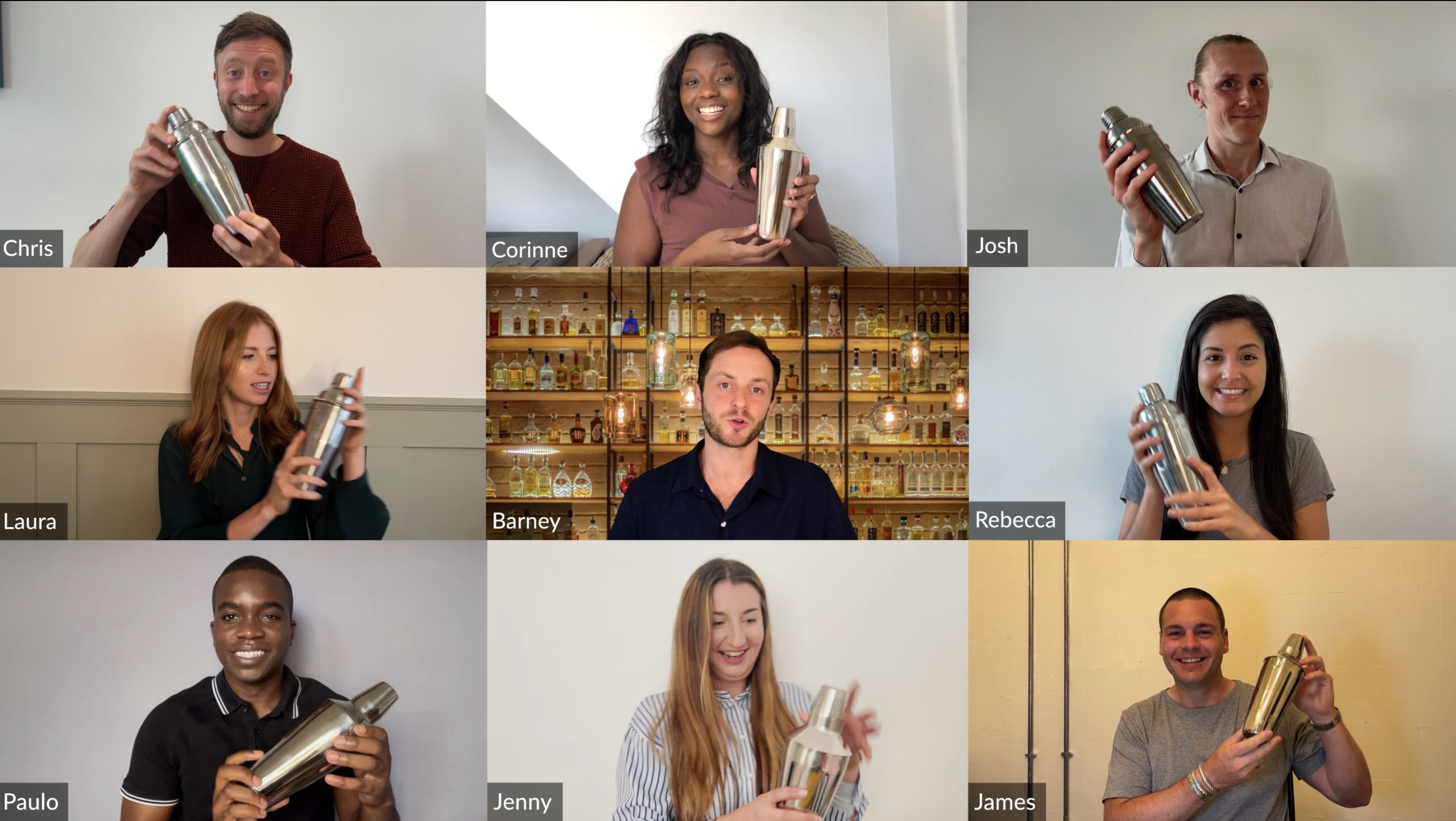UK businesses are twice as likely as their US counterparts to involve alcohol in virtual team-building activities*. Based on bookings through Avva Experience, they found that UK companies opted for a virtual ‘night out’ with drinks-based experiences like wine tasting or cocktail-making. In contrast to this, US workers preferred solving challenges in teams, with ‘escape room’ experiences ranking most popular among employees. This points to a strong disparity between the two work cultures and office norms.
Additionally, UK companies were four times more likely than the US to organise team-building activities outside of regular working hours. Over the past three years, 40% of UK employers booked virtual ‘after-hours’ events, compared to just 9% in the US.
However, the data shows a significant shift in UK working culture for 2023, at a time when many have adjusted to new ways of working since the Covid-19 pandemic. Whilst there are no changes in the UK’s preference for alcohol-based events, they are more closely aligned with Americans this year, with only 20% scheduled outside of working hours – down from 40% in previous years.
The shift can be attributed to calls for better work-life boundaries. According to the 2023 Salary & Recruiting Trends report by Hays, 56% of employees are willing to take a lower-paying job if it means a better work-life balance. With new data from Indeed also showing office-based workers sacrifice almost five hours per week commuting, the desire for a better work-life balance underpins the popularity of remote and hybrid working in the UK.
Avva Experience CEO and co-founder Barnaby Sellers commented: “It’s been interesting to see some notable trends emerge in how UK companies choose to keep their workforces interacting and engaged compared to those in the US, particularly when it comes to a cultural preference towards drinking.
“The pandemic has led to dramatic changes in how teams socialise out-of-hours and what we’re now seeing is employers becoming more concerned about maintaining the boundaries between work and home life. They’re looking for ways to improve work-life balance for their remote teams in order to boost productivity, engagement and overall well-being.”
*Report from Avva Experience









